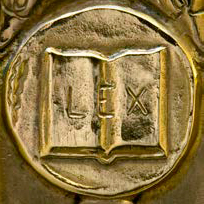Law, College of

Nebraska Law Bulletin (Selected Issues)
Date of this Version
10-15-2023
Document Type
Article
Citation
Nebraska Law Bulletin (October 15, 2023)
Abstract
This comment was written as a supplement to a previous article, The Wrong, the Wronged, and the Wrongfully Dead: Deodand Law as a Practice of Absolution, 101 Neb. L. Rev. 731, (2023).
The men and women of Tudor England were, by and large, pragmatists. Grumbling, they sold off as much of their Catholic past as they could not hide or keep, and called in the carpenters to set boards on trestles and fix the forms round the communion tables.
Berman wrote that an essential element of each of the great revolutions that shaped the Western legal tradition was an apocalyptic vision of the future, which served as a “revolutionary millenarianism” to inspire commitment to an end-time eschatology and a belief that history was moving toward a final denouement. But he also noted that each of the great revolutions eventually made peace with the prerevolutionary systems of law and restored many of their elements by including them in new systems that reflected the major goals and beliefs for which the revolutions had been fought. His analysis suggests that moments of change are both reactionary toward the failures of the past and visionary of the hope for the future. Revolutions are, by nature, inevitable, unsustainable, and productive. This was true of the effect of the Protestant reformations on the English system of common law, particularly with respect to the law of deodand and unnatural death. The history of the practice likely long predated any observable influence of Roman canon law, at least in the minds of the people and the reforming state, such that the related legal concepts could not be easily thrown aside amid theological reform. As Bernstein wrote, understanding the roots of forfeiture in the context of deodand depends on “the depictionalist belief that things are not exactly commensurable with rationalist devices like money and punishment.” The rule of the Yorkist and Tudor sovereigns produced an English society that was “intensely ‘law-minded’ obsessed with legal considerations, legal rights, and legal remedies.” Yet even in the wake of evolving courts, burgeoning and retracting jurisdictions, and an ever-increasingly official legal system open to the woes of political corruption, the “burgeoning weeds of litigation did not altogether hide from view the ancient aim of reconciliation.”


Comments
Copyright 2023, the author